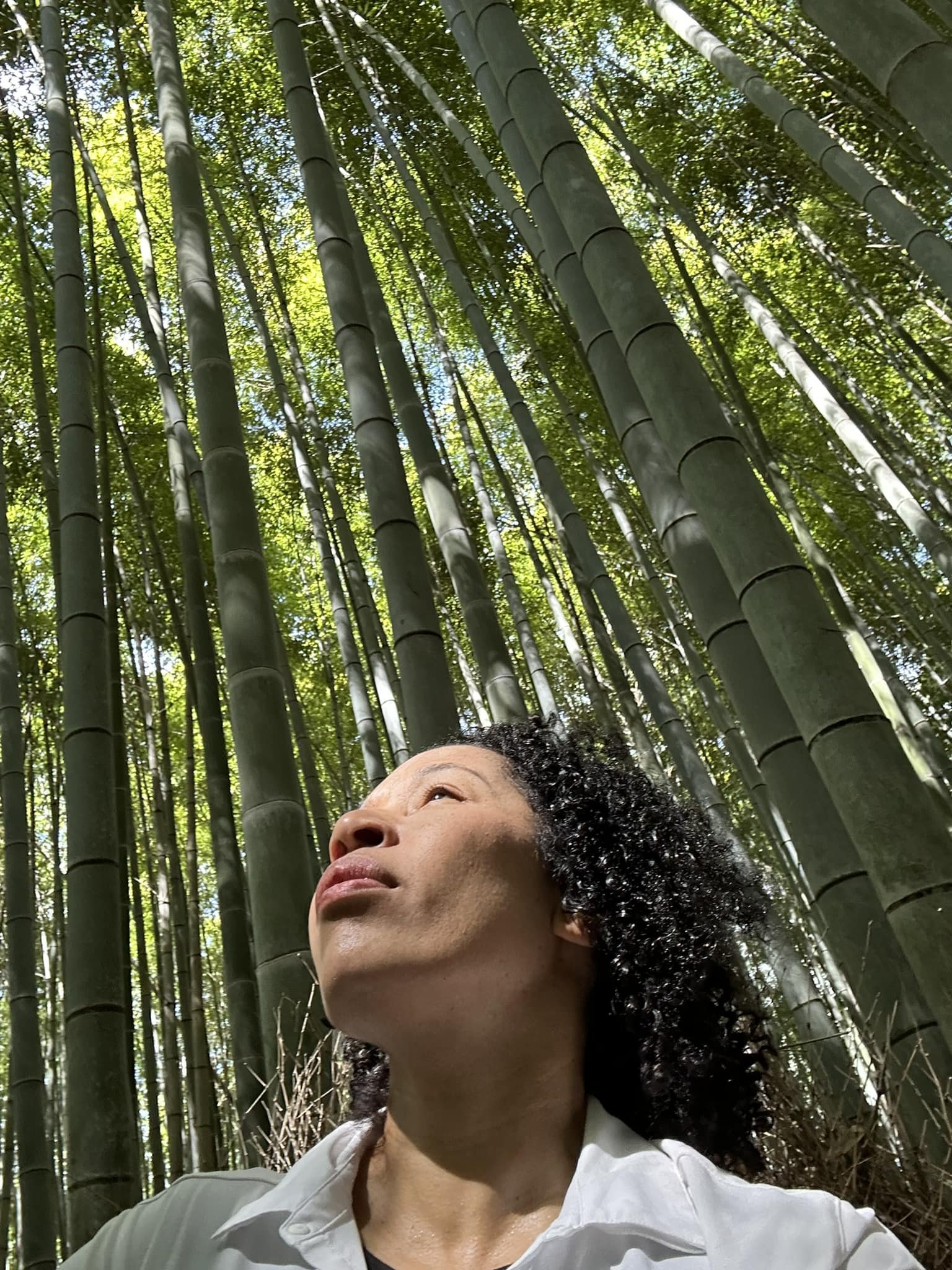On Leadership: The Higher You Grow, The Deeper You Bow
I’ve discovered that when you get quiet and listen, people, places, and things will speak to you. You’ll find wisdom and symbolism in your conversations and observations. Our last day in Japan would be no different. After nine days away, my mind was already beginning to return to work, but we had time to squeeze in one last adventure. About twenty-five minutes from our hotel was a place in Kyoto called Arashiyama Bamboo Forest, so we jumped in a cab the last morning with only a couple of hours to spare before our flight.
Arashiyama Bamboo Forest in Kyoto, Japan
Perhaps I was drawn to Arashiyama because I’d heard over the years about the properties of bamboo - that it was stronger than steel. I’d only seen furniture and small plantings outside of a home but never an actual forest. I’d also read about sustainable consumer products being made with bamboo and how bamboo is being used as a replacement for plastic and steel in construction. But most likely, my interest in Arashiyama arose from perusing the many tourist shops where ancient proverbs were artistically applied to scrolls and other trinkets. Perhaps all of the above were speaking to me. Sifting through incense, wooden carvings, and bright, kimono fabrics, I saw on the shop’s table one scroll that particularly caught my eye. It happened to be a Chinese proverb about bamboo.
“Be like bamboo. The higher you grow, the deeper you bow.”
I Google’d it, and read that this proverb teaches that greatness should not be measured in strength or superiority to others, rather it should be measured by one’s ability to bow with modesty and compassion. Perhaps because I’d be returning to work on Monday, and I have a lot of opinions about leadership, my mind drifted to the topic as we walked through the green.
Like bamboo, leaders in an organizational structure can seemingly tower over the people they lead. When they do, they overshadow their teams, causing contributions to go unseen. When leaders act with modesty, they bow, allowing light to be shone over the work of the individuals that they lead. I’ve never met a human that did not want to be acknowledged for their work, ideas, talents, and contributions. While leaders need to exhibit strength, leaders of the future need to extend light, flexibility, and compassion. As leaders give, they receive the same back from their teams. Leaders will make mistakes and require the support of their teams during stressful times. The molecular structure of bamboo allows it to endure greater stress than steel. In today’s world, few care to work under a leader who is strong but inflexible and self-interested. The world is looking for purpose-filled work, innovative thinking, and leaders with warmer qualities that help bring forth the full extent of their team’s abilities, as growth-seeking professionals. Young professionals don’t want to stop growing. They often go off course because they are discouraged from years of having no guide. A leader should be a guide.
It’s troubling to see that people who would be excellent leaders are choosing not to lead, electing instead to remain as individual contributors. Leaders, leadership structures, and unreasonable expectations have given these roles a bad name. Leadership isn’t about the glory of the leader and earning several times as much money as the people who report to you for the sake of being on top. Leadership is about bringing added value, and that’s why you get paid. It isn’t about proving to have no life outside of work or pretending to be 125% dedicated to the company. It’s about working with passion, on work that you believe is important, while also supporting individuals and and shining light on future leaders who can drive meaningful, organizational change.



